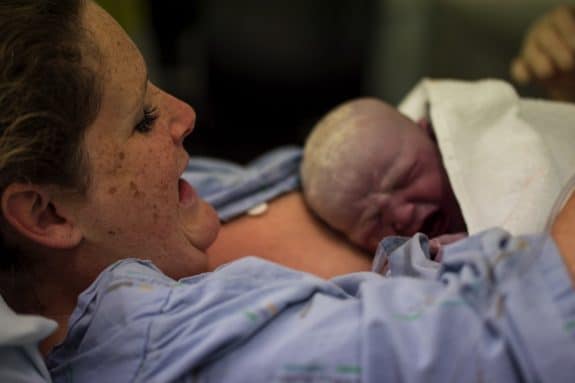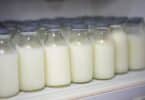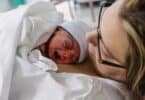A mother who gives birth vaginally and breastfeeds her baby is passing on essential microbes to her child, part of a continual chain of maternal heritage that stretches through generations of ancestry if all have done the same. This means that trillions of microorganisms that live on in the baby resemble those of the mother, her mother, and previous generations.
During pregnancy, the fetus is protected from harmful microorganisms by the amniotic sac. When the water breaks, the baby is suddenly exposed to a wave of the mother’s vaginal microbes washing over it in the birth canal. More microbes come from every breath, skin-to-skin contact, and breastfeeding. Breast milk has special sugars – called human milk oligosaccharides (HMO’s) – that are designed to feed the mother’s microbes into the baby’s gut. These microbes multiply quickly and are a “good” bacteria that essentially crowds out any harmful pathogens.
The good bacteria in breast milk trains the baby immune system to identify harmful pathogens to be attacked, setting up that young immune system for the best possible lifelong health.
When a woman delivers via caesarean section or formula-feeds her infant, the baby is not getting a full complement of the mother’s vaginal, gut, and breast milk microbes. This could have a significant impact on health. Multiple studies link c-section with an increased risk of the child later developing asthma, Type I diabetes, celiac disease, and obesity.
Having a c-section or formula-feeding a baby means the infant is likely to have a different microbiome than the mother or previous generations before her since the heritage chain is broken. Many studies show the microbial profiles of c-section babies have a lower amount of the species Bacteroides than babies who were born vaginally.
If formula-fed, the baby doesn’t receive the 700 species of microbes found in breast milk and isn’t receiving the human milk oligosaccharides that are nature’s perfect food for feeding the microbes transferred from the mother’s vagina and gut during a vaginal birth. Additionally, formula milk will likely contain other bacteria that should not be there, and those could interfere with the optimal training of the infant immune system.
Vaginal birth and breastfeeding are still widely considered the healthiest possible start for a newborn because of the power of the microbe heritage they provide.







